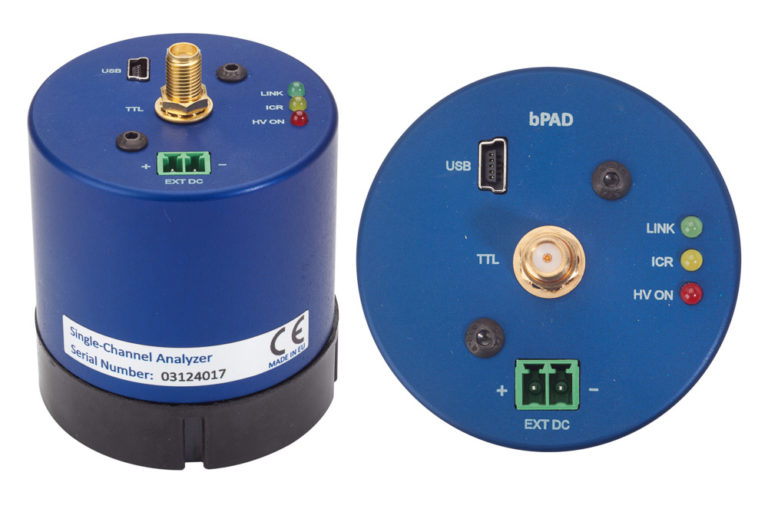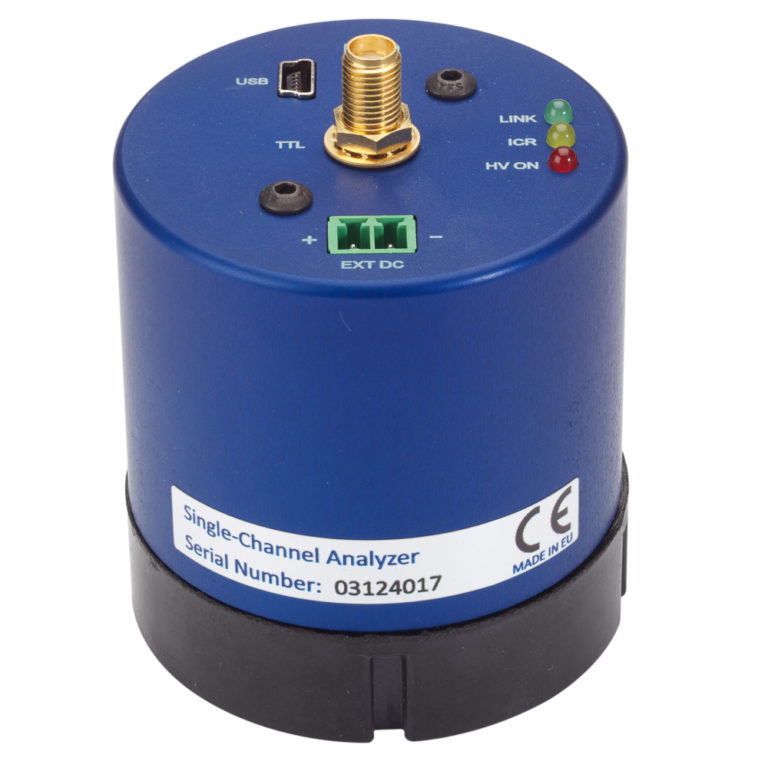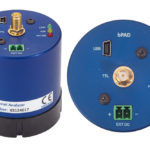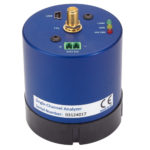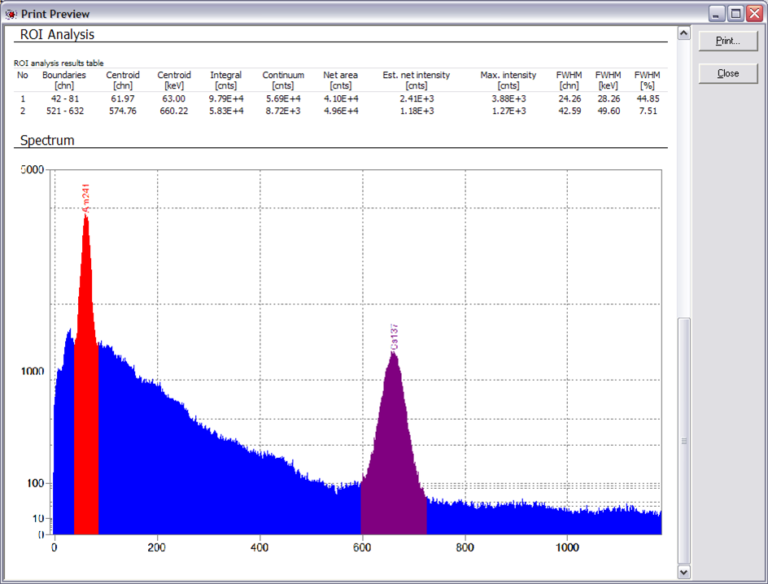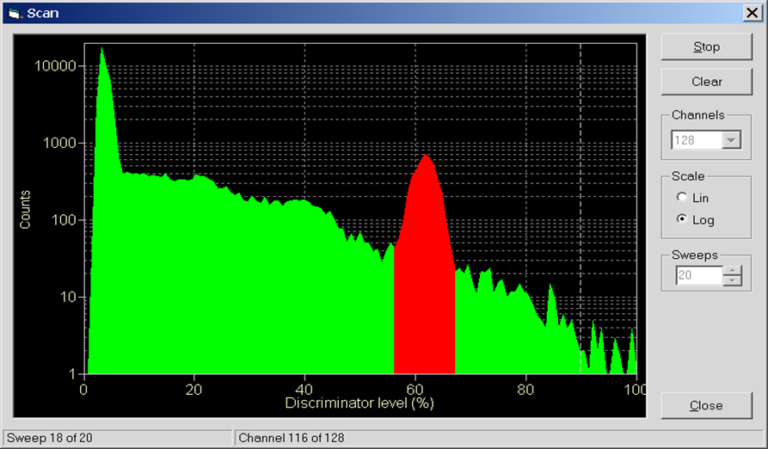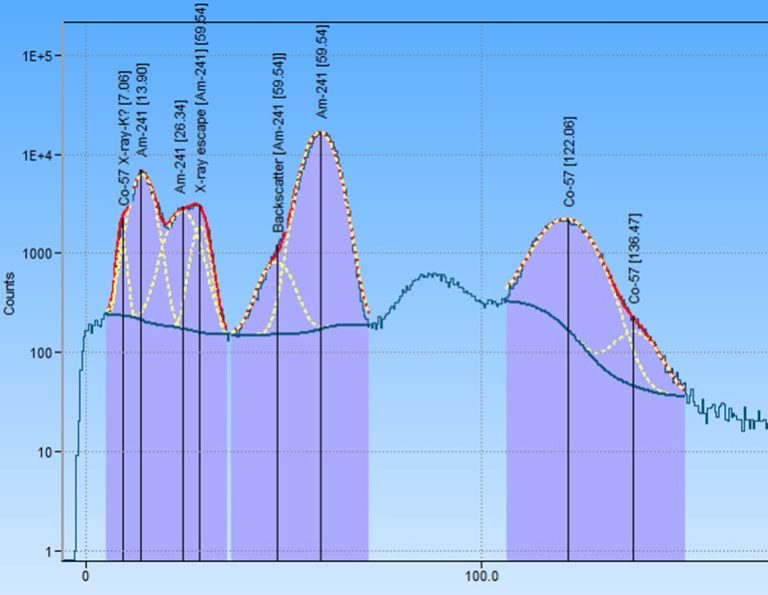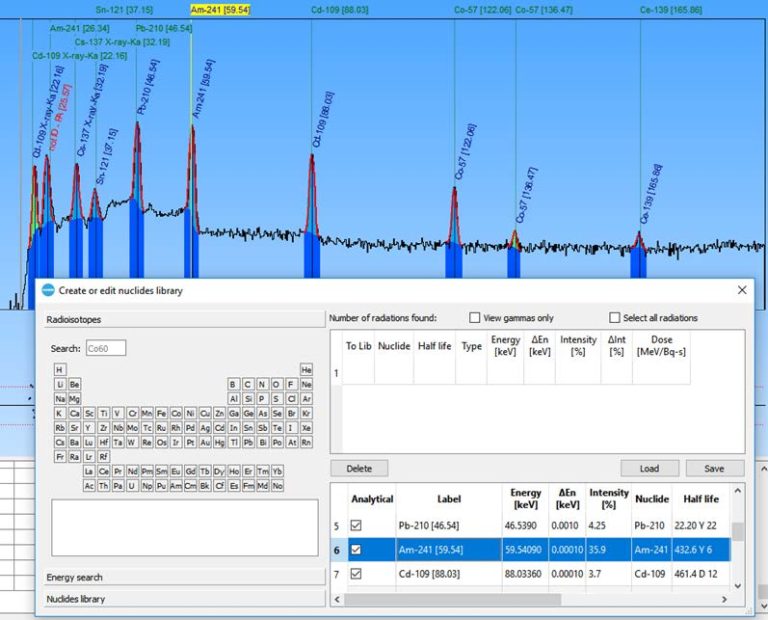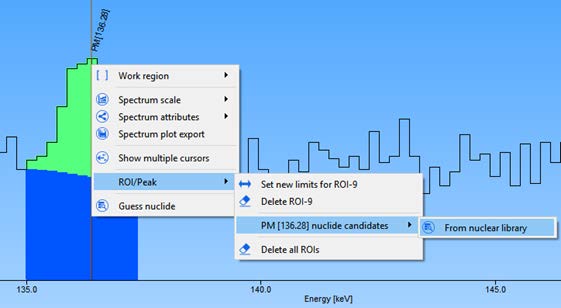bPAD
An Intelligent, Compact Single-Channel Analyser
The bPAD is an intelligent, compact Single-Channel Analyzer. Unlike traditional designs, this device is fully digitally controlled via USB: no scope or messing with screwdrivers is necessary. A simple PC application allows all the parameters (High Voltage level, amplification factor, discriminator thresholds) to be quickly set. More than that, a pseudo PHA mode is implemented, allowing to acquire an spectrum in order to set the discriminator window from the peak of interest. All the settings are stored in permanent memory, so the device can function in standalone mode every time the power is applied.
The device contains a Preamplifier-Amplifier-Discriminator with TTL digital output. The bPAD also includes its own high voltage power supply for operating standard 14-pin photomultiplier tubes, which are commonly used with scintillator-type radiation detectors (e.g. Plastic, NaI(Tl), LaBr, CeBr, etc).
The bPAD is a compact system used to monitor the count rate in an energy region of interest (ROI). The detected signal is output as a TTL pulse, making it compatible with most industrial, environmental and laboratory counting systems. In contrast with traditional SCAs the bPAD is fully controlled by a microprocessor, providing easy setup and “smart” modes of operations.
Features at a glance
- Acquisition mode 1: Differential
- Acquisition mode 2: Integral
- Upper and Lower Level Discriminator resolution: 2048 steps
- Analogue amplification factor from 1 to 256
- TTL-compatible pulse output
- High-voltage supply of up to 1500V
- External power input of 6 to 36V
- Size: 56mm diameter by 60mm long (71mm counting the connector length)
